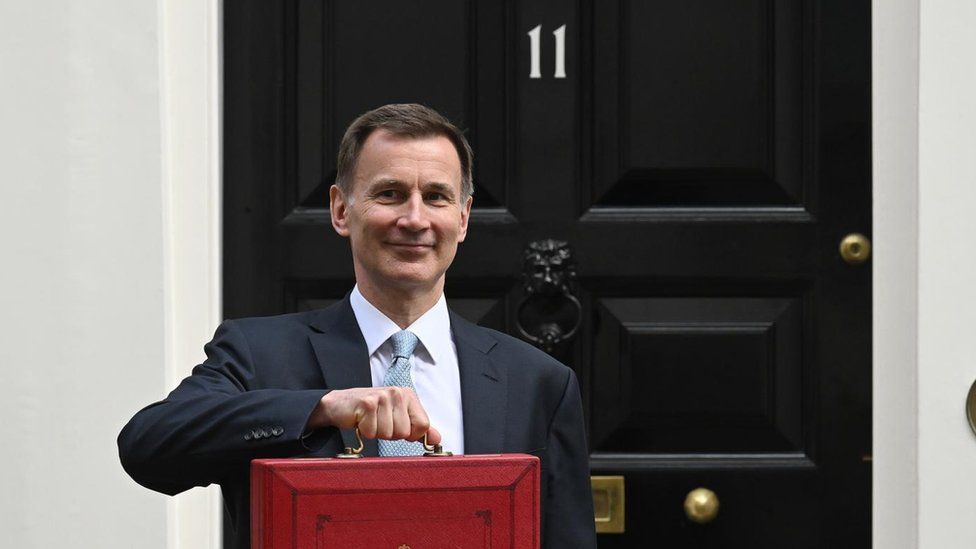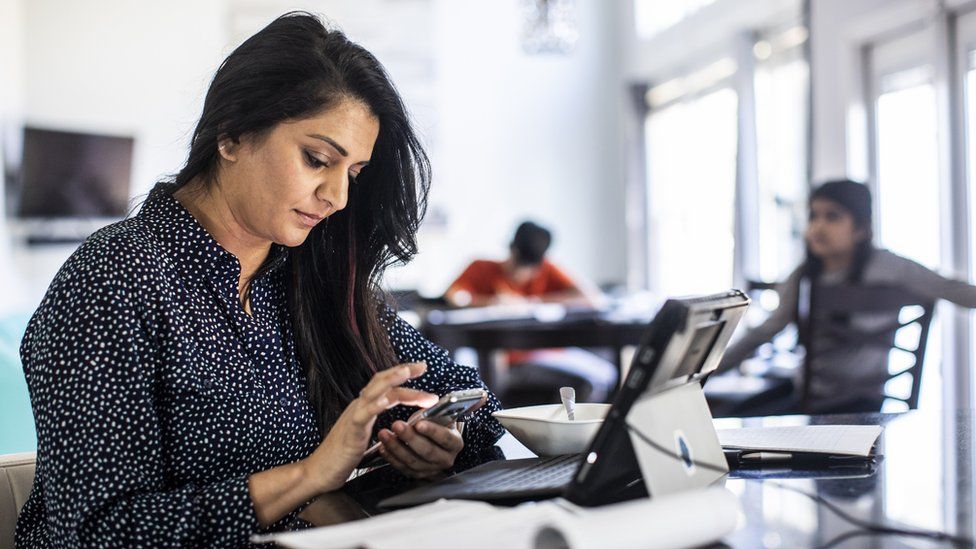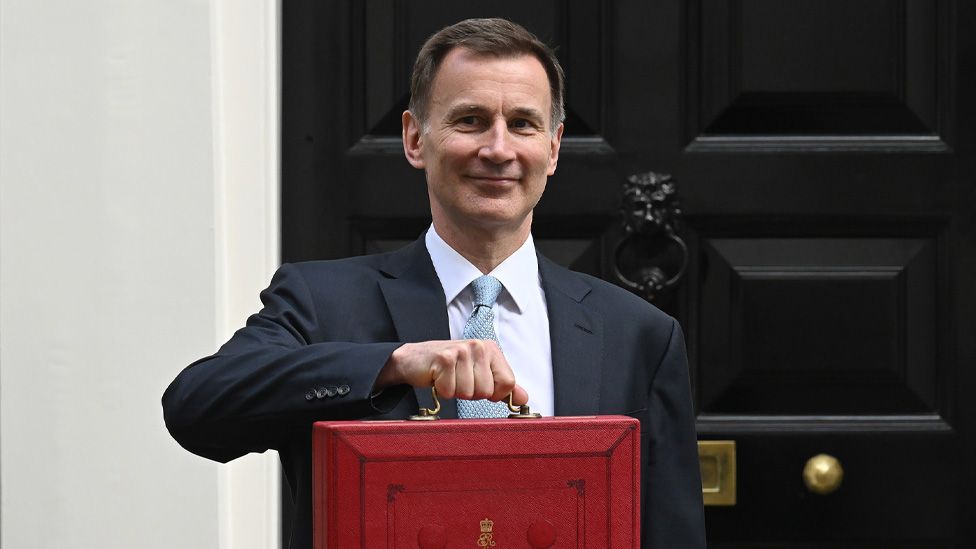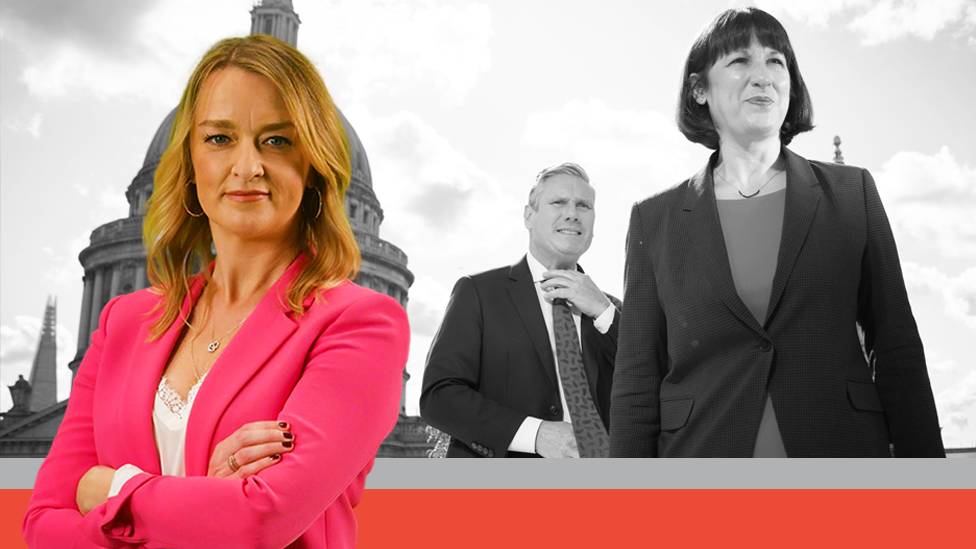
Rachel Reeves often spent school holidays with her grandparents in the Northamptonshire town of Kettering.
She’d be taken to do the rounds of other relatives, who would press the odd 20p piece into her and her sister Ellie’s palms for holiday treats. At the end of their week, they were taken to the local toy shop to choose their goodies, her sister Ellie tells me.
Like most of us as kids, Ellie would spend all of her cash. But the young Rachel would only allow herself something small – and save most of the money.
Decades later, Rachel Reeves, now Labour’s shadow chancellor (Ellie is also a Labour MP), wants you to believe that kind of restraint defines her.
An MP since 2010, she has been talked about as a possible chancellor for years in Westminster’s gossip factory. And while the election is miles away, and a lot could still change, right now she appears on track to become the most powerful woman in the country as chancellor.
Yet pollsters report the public doesn’t know much about her. People rarely mention her spontaneously in focus groups – and one recent snapshot from the polling group More in Common suggests only 10% of the public really know what she stands for.
So I’ve spoken to 20 different sources – her friends, colleagues, and opponents – to explore the kind of politician she is, and how she would handle the difficulties and dilemmas she might face both now and in the coming years.
Deadly serious
The universal verdict on Reeves is that she could not be any more serious about power, or any more determined to win.
Growing up in south London, her mum showed her how to manage the family’s finances sitting at the kitchen table – Reeves has said that “we weren’t poor but we didn’t have money to spare”.
Motivated by her own experience of public services – huge classes and not enough text books at school – she started banging on doors for Labour as a teenager in the run-up to the 1997 election and caught the politics bug, working for a decade as an economist before being elected in 2010 as the MP for Leeds West.
Colleagues describe her brain power and hunger for work – she “messages at all times of day and night”, says one.
Another says Reeves “is normally the cleverest person in the room”, and that she does not blag.

Sign up for the Off Air with Laura K newsletter to get Laura Kuenssberg’s expert insight and insider stories every week, emailed directly to you.

One fellow shadow minister says she “chews through calls and briefings”, adding: “I have never, ever, ever, seen her unprepared.”
Her public persona does not reveal her humour and human side, her colleagues say. She laughs loudly in Westminster’s corridors and loves a glass of wine, they say. She belts out show tunes during campaign trips and listens to Beyonce when she runs.
She also fiercely protects time for her young family, they say – like many working parents, she crammed in making a costume for World Book Day last weekend, which she joked with colleagues about later.
But one of her friends says politically she is “hard as nails”. Another member of the Labour front bench told me: “She is a normal, likeable, relatable person but you wouldn’t want to get on the wrong side of her politically because she would probably eat you for breakfast.”
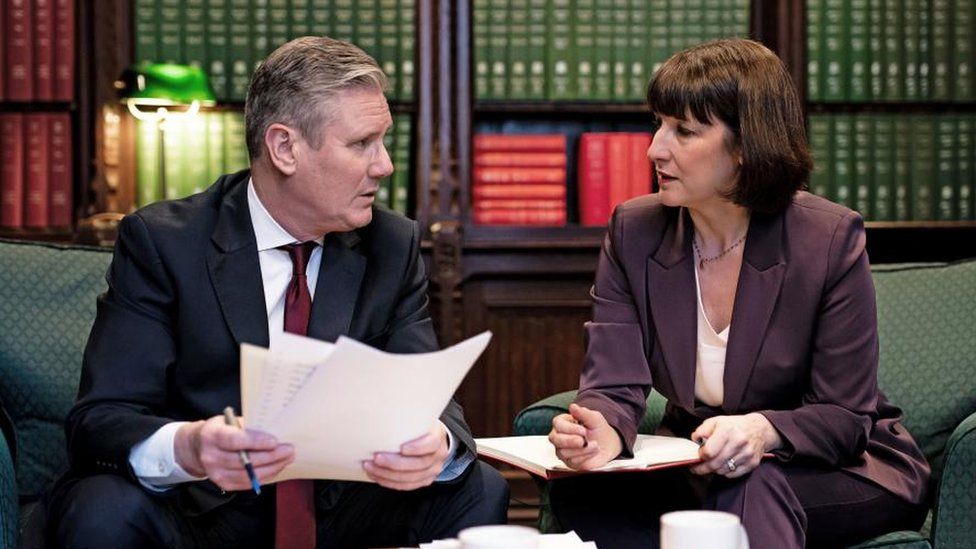
Reeves and Labour leader Sir Keir Starmer didn’t know each other particularly well before he hired her as shadow chancellor after the party’s defeat in the 2021 Hartlepool by-election. But insiders say they have developed a good working relationship and friendship – “he thinks like a lawyer, she thinks like an economist” but “they are both good at cutting out the crap”, another source says.
Starmer respects her views but “it is very clear who is the boss”, another colleague says. And while Reeves might be very controlled in public, those who know her well say sometimes she might give away a little frustration.
“The Rachel Reeves eye roll is legendary,” says one person, referring back to this moment years ago as evidence.
Big dilemmas ahead
Reeves certainly faces serious dilemmas both now and if Labour wins.
In the aftermath of the Budget she has a big question to answer about where Labour will find the extra cash it wants to spend.
Conservatives have adopted some of Labour’s tax raising plans – cracking down on non-doms and extending the windfall tax on gas and oil companies. Labour concedes there is a £2bn “hole” in their plans. The Conservatives contest it’s double that.
And longer term, if Labour wins, she has said herself that the party will inherit the worst economic situation since the aftermath of World War Two.
One union leader said: “She is staring into the most difficult job imaginable.”
There is massive pressure both from inside and outside Labour over how she should approach that.
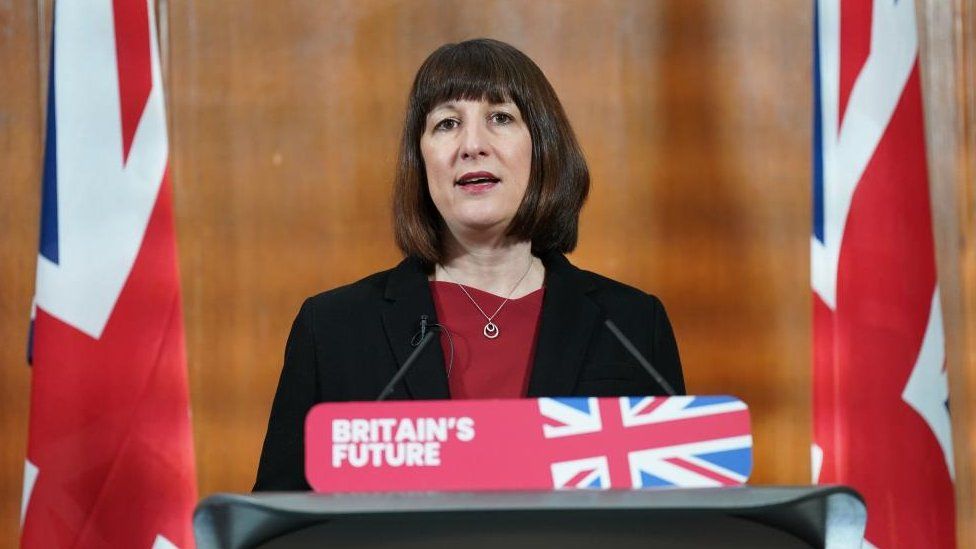
She has resolved to accept the same ground rules as the Conservatives: that the government should not borrow any more cash to pay for everyday spending on schools and hospitals, and to show that the government is chipping away at the country’s debt within five years of winning power.
After the economic disasters of the pandemic and the effect of the war in Ukraine, public money is very, very tight.
Reeves wants to stick to strict spending plans, not spending money that, in the words of one colleague, “doesn’t exist”. It’s not a surprise – she has a proper pedigree in economics and her first boss was Andrew Bailey, now the governor of the Bank of England.
Her approach won’t please everyone in the party, as one observer explains.
Her tight grip on the books means it’s hard to make big, expensive promises that might go down well with some voters – or at the very least, show that they’re different to the Conservatives.
Voters are often unconvinced that there is much that separates the parties, as we heard a few weeks ago. Some in the party are anxious about this and accuse Reeves and other shadow ministers of sounding “robotic”, like “automatons”.
It’s her economic judgement, but it’s also a political judgement – she is all too aware the Conservatives want to run a campaign claiming Labour will raise taxes and raise spending. “She knows the Tories are desperate for an election fight about income taxes,” says one shadow minister. “She won’t give them that.”
Another senior figure says the political logic is crystal clear – to give the Tories as “small a target as possible”.
Right on cue, one of her Conservative opponents tells me: “I think she is uninspiring but she is doing exactly what she should be doing to win an election, which is being dishonest with the public about what they will do if they win – which is spend more and tax more.”
Whether you buy her arguments or not, she has wrenched back economic credibility for Labour, which is polling ahead of the government on the economy. This is no mean feat, as one of her friends says. “Our position is unrecognisable – I don’t think she gets enough credit.”
But both Labour and the government have also been criticised for a “conspiracy of silence” about how tightly they might squeeze spending if they win the election. Reeves has put huge efforts into wooing the City – but there is more work to do to convince people that Labour has a clear, credible economic plan.
“She makes all the right noises and clearly knows what she is talking about,” says one City insider, but there is a desire to hear more, to know more, about what kind of economy she really wants to create, and question marks over whether Labour is really ready.
One of the party’s own business supporters tells me that Labour needs “more resource and heft for thinking.”
They hope for more boldness, referencing New Labour’s plan to give the Bank of England independence in 1997, cooked up by Ed Balls and Gordon Brown. “Where’s the 2024 equivalent of Ed Balls?” they ask.
But given Labour has been ahead in the polls for such a long time, perhaps there is not much political incentive for the party to change its approach. We’ll see tomorrow if Reeves is willing to be more forthcoming in our studio.

- On this week’s show are Labour’s shadow chancellor Rachel Reeves and Health Secretary Victoria Atkins
- Justin Currie, the frontman of Scottish rock band Del Amitri, will also join the show to talk about his Parkinson’s disease diagnosis
- Watch live on BBC One and iPlayer from 09:00 GMT on Sunday
- Follow latest updates in text and video on the BBC News website from 08:30

Despite the difficulties and dilemmas, her friends and colleagues agree she is not someone who budges easily. She is not in politics for the grandstanding, but to get things done according to her beliefs.
Those beliefs are “hard to pin down to one faction or tribe”, a fellow front bencher says. During the Corbyn years she focused on her committee work. She neither became public critic number one nor sat alongside Jeremy Corbyn on the front bench, as Keir Starmer did.
One friend says: “She is not remotely interested in the posings of opposition, the clicks and likes, and people who want to display their credentials and display their politics.”
But she is, of course, a politician. One colleague notes that she “understands ‘small p’ politics very well, always dropping little texts, knowing what matters to different colleagues”. Unusually in this world, she doesn’t seem to have enemies – at least not yet.
In December, Reeves spoke at the funeral of Alistair Darling, the former chancellor who took her under his wing when she became an MP. She spoke fondly of having lasagne and red wine with him and his wife, and of his counsel – he found himself in charge during a massive crisis when families and the country were having a hard time making ends meet.
The Budget last week was the first occasion as shadow chancellor when she wasn’t able to seek his advice. But in her eulogy, she quoted his previous words to her: “Make the sums add up, don’t fall into any political traps, but remember to offer hope.”
It is abundantly clear how Labour and Rachel Reeves are trying to follow the first two mantras – less clear so far on what “hope” actually means to them.
A colleague of Reeves told me that when she and her team attend one of their many “business breakfasts” there are always lavish pastries left over. Rather than abandon them, Reeves gets her team to take the leftovers back to the office – having asked permission of their hosts first, of course.
She may not be saving her holiday money at the toy shop any longer – but for Rachel Reeves, perhaps restraint really does come first.

What questions would you like to ask Labour’s shadow chancellor Rachel Reeves and Health Secretary Victoria Atkins this Sunday?
In some cases your question will be published, displaying your name, age and location as you provide it, unless you state otherwise. Your contact details will never be published. Please ensure you have read our terms & conditions and privacy policy.
Use this form to ask your question:
If you are reading this page and can’t see the form you will need to visit the mobile version of the BBC website to submit your question or send them via email to YourQuestions@bbc.co.uk. Please include your name, age and location with any question you send in.
-
-
2 days ago

-

